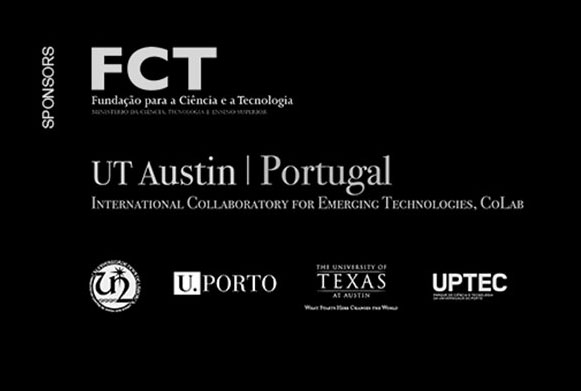Between Riot and Rave: five years into a digital media festival
by Heitor Alvelos, Karen Gustafson and Fátima São Simão
based on a keynote address by Heitor Alvelos, October 17, 2012

The FUTUREPLACES digital media festival, one of the key initiatives of the UTAustin-Portugal program in digital media, has this year completed five consecutive editions. From day one, it remains an event deeply rooted in the cultural landscape of Porto.
Work began very intuitively in late 2007, around the thought that rather than organizing a digital media festival according to expectations, it would be best to consider the contextual challenges when digital media faced the city’s multiple realities. When we think of a digital media festival, we tend to think of a showcase for cutting edge technology, or a celebration of the convergence between technology and the creative act: these festivals do provide great environments for technological development to be presented, experienced, enjoyed, and consumed. Yet FUTUREPLACES decided to propose a clear focus on socio-cultural impact. This was a means of territorial differentiation, but was also an acknowledgment of the purpose of a festival within an advanced R&D program joining universities, partners and entrepreneurs.

The image of this year’s edition of the festival was the illustration of a turtle, drawn by a 19th Century Austrian illustrator, Aloys Zötl, and as such was a way of representing that, while honoring cutting edge technology, we do believe that there is lot more that needs to be acknowledged when we speak of digital media, particularly within the context of advanced research: we need to bring in past and present, analogue and digital, short-term and long-term. We need to consider the impact, the dangers, the benefits, the traps, the poise, the underlying promise. We need to be reminded that, particularly in the social realm, some futures take decades to be constructed, in stark opposition with the vertigo of digital novelty.
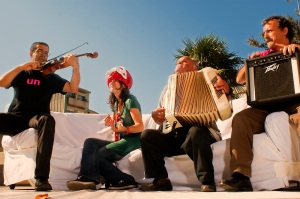
So early on, FUTUREPLACES decided to speak less about technology per se, and more about what technology could do for us as a complex social and cultural fabric. And this meant: surveying and nurturing existing local realities (projects, communities, interpretations, routines, needs, oddities); incubating new projects we believed necessary and possible; and consulting with partners with similar missions. In this process, over twenty international universities have joined the festival’s activities; nine partner festivals, including South By South West and Futur En Seine, have collaborated; all major local institutions, including the Serralves Museum and Casa da Música, hosted futureplaces events; and the festival has maintained a wide network of institutional partners, including various City Halls, Research Centers, international award-winning citizen projects and media labels. Leading international thinkers and practitioners in new media have provided keynote addresses, names such as Golan Levin, Hugh Forrest, Siva Vaidhyanathan, Peter Sunde, Elizabeth Stark, Philip Marshall, Teresa Nobre, Sérgio Branco, Philip Dean, Jon Wozencroft, Blaine L. Reininger, and Negativland’s Jon Leidecker. FUTUREPLACES has reached over 30 countries, and has welcomed a very diverse mix of cultures, people and missions. Events have included masterclasses, concerts, theater plays, forums, workshops, jam sessions, public family portraits, interviews, flash mobs, symposia, brainstorming sessions, cooking sessions, car discos, exhibitions, awards, performances, book editions, music editions, website launches, Q&A sessions, random music labs, situationist mappings, research projects, cell phone symphonies, installations, networking sessions, digital graffiti murals, a written speakers corner and a series of analogue tweet events.
The last five years have thus been quite an adventure in what we may call “social fertility”. This surveying, this incubating and consulting brought us to work with, and bring together, politicians, musicians, homeless citizens, hackers, universities, graffiti writers, NGOs, tech-heads, and disabled youth. We invited researchers, DJs, human rights groups, artists, museums, sexual minorities, other festivals, pirates, schools, street musicians, start-up companies, bloggers, activists, security guards, designers and cooks. And we brought in mayors, headhunters, academics, media labels, car tuning communities, radio producers, anarchists, seamstresses, entrepreneurs, immigrants, tourists, and people who just happened to pass by. FUTUREPLACES began to present itself as a festival without an audience: all joining are active participants. After five years, more than an event, FUTUREPLACES is now a community of creative and engaged citizens.

FUTUREPLACES has thus:
– facilitated the bridging between a bankrupt shopping mall turned music hub and the largest music auditorium in Portugal (Casa da Música), as well as Summer festivals;
– given birth to the foundations of the first full-time broadcasting independent radio station in Portugal since unlicensed radio was outlawed in the late 1980s;
– advised on the birth and development of Manobras no Porto, a two-year project by the City Hall that invites citizens of the historical center to rescue, legitimise and project creative activity in daily life;
– featured the branching out of “plus minus” (±), AKA the “Portuguese Banksy”, into participatory approaches of collective authorship, in our case the creation of a written “speakers corner”;
– begun hosting a series of participatory websites, FUTUREPLACES “spin-offs” that consolidate the mission of social involvement via digital media beyond the festival’s dates.
– developed participatory approaches which have later been adopted and implemented as methodologies in curricular and research contexts.
Additionally, the festival has helped consolidate a series of applied research projects that involve media archives made by citizens, merge industrial heritage with personal narrative, re-invent Portuguese iconography and visual heritage, bring DIY interface technology to wider audiences, and apply entertainment principles in social media to health networks. Most of this work has been accomplished via Citizen Labs and Technology Skills Labs, over twenty workshops offering different levels of expertise to a very wide variety of participants.
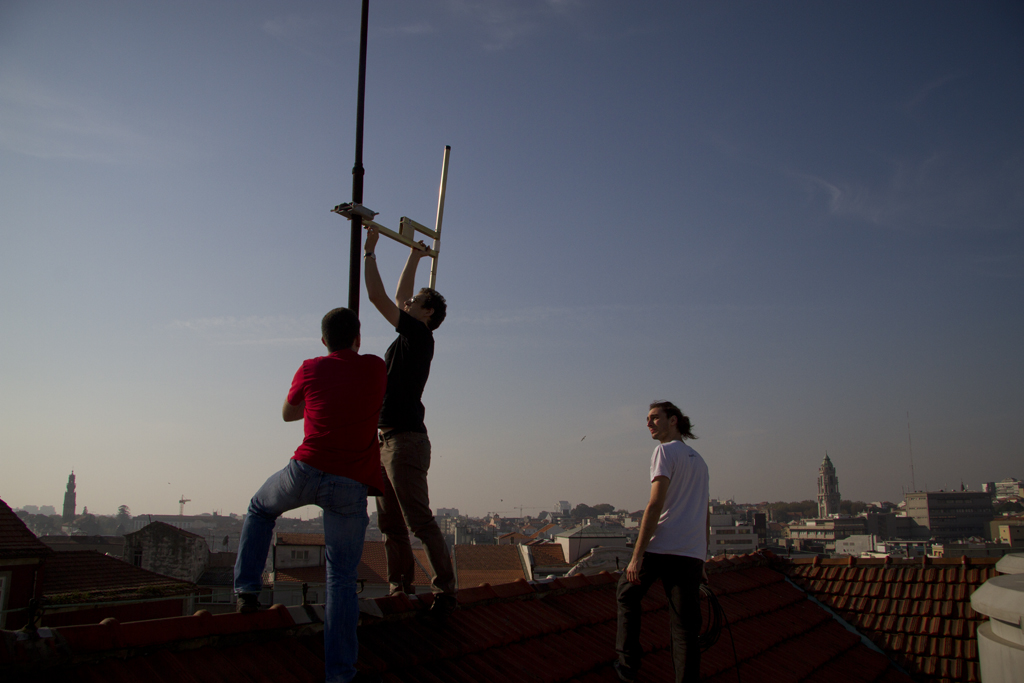
If anything, we do believe this is still the beginning: because five years on, the fairly oblique motto of media and society has flourished not only as something a lot more readable, but as a generalized activity. Let’s keep in mind Facebook revolutions were a long way into the future, back when FUTUREPLACES began its gestation in late 2007.
Yet we believe recent developments in Portuguese society make our original motto even more poised, more decisive. The major economic challenges the country has been facing have recently fueled a resurgence of a specific kind of citizen involvement. People have been taking the streets more and more often in the last year, demonstrating heavily against harder and harder austerity measures. They have been setting up demonstrations on Facebook, recording confrontations on their phones, tweeting and posting thoughts, ideas and photos, printing posters… even handing out flyers with alternative national anthems. Yet the word “austerity”, while describing the current financial strain, may also speak of the danger of a lack of social fluidity. Somehow a festival can no longer provide pure entertainment. Yet it cannot become a demonstration either.
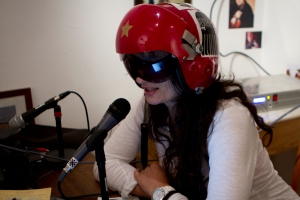
As far as citizen involvement goes, both party and protest often seem unfulfilled tactics. Protest is often reactive, born out of despair. And party is often a parenthesis without a particular purpose besides “chilling out”. So back to the work at FUTUREPLACES. In a way, we have been attempting to combine both party and protest, but trying to reach a balance that maintains the best of both: constructive engagement (i.e. protest minus the aggression), and a celebration with purpose.
This is clearly quite far detached from the appropriation of the mythology of revolution by consumer products. And so much of new media companies have been doing just that throughout the decades – just recently, a perfume company used the national demonstration of September 15 as the backdrop narrative for an imaginary love story between two young activists in a viral advertising campaign.
This is not to say other modes aren’t possible or valid or desired – or desirable; it’s saying that a bottom-up process of reinvention and regeneration of the social fabric tends to be healthier. We as humans value authenticity. It makes for new kinds of ideas, new kinds of bridges, new solutions, new ways of interacting and negotiating. And most of this work is neither sponsored nor dependent on a higher order – especially because new media is in fact becoming truly accessible.

So, back to “social fertility”. These are the kinds of dialogues we believe a healthy social fabric can engage in.
The musician meets the homeless citizen meets the hacker meets the entrepreneur. The DJ meets the human rights group meets the start-up company meets the security guard. The designer meets the terminally ill meets the academic meets the cab driver meets the radio producer meets the homeless citizen. The seamstress meets the tech-head meets the immigrant meets the people who just happened to be passing by.
And yes, digital media can play a role, but for that, it needs to look beyond the allure of simulation. We are invited to make full use of what digital media can accomplish, way beyond the narrow constraints of what we are offered on a more immediate level. Digital media not announcing a brave new world, but attempting to unravel a healthier world.
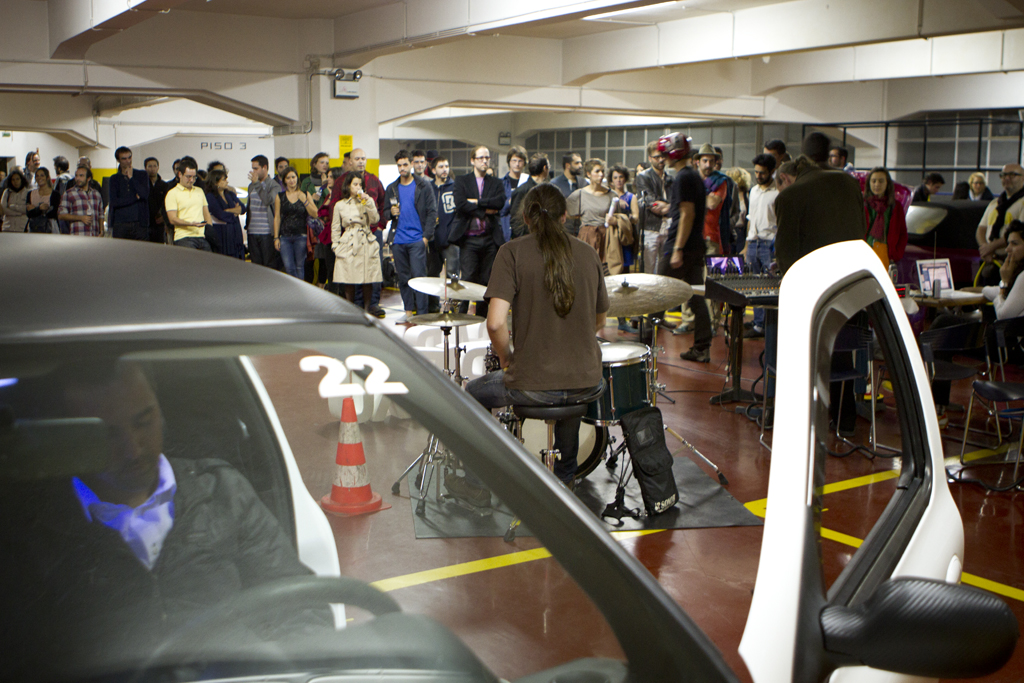
At FUTUREPLACES, we have been fostering this aproach, not just because we believe in it, but because, throughout these last five years, we have actually witnessed its seeds. The growing heritage of FUTUREPLACES is a testament to the dedication and determination of a community formed around the UTAustin-Portugal program in digital media; but most decisively, these five years of FUTUREPLACES vouch for the real possibility of true citizen emancipation.
Photography by Luís Barbosa and João Pádua.

